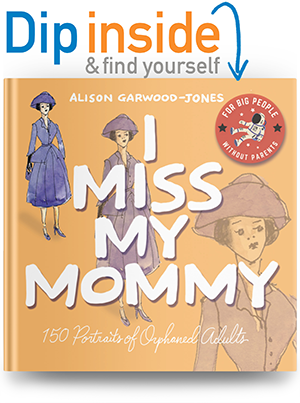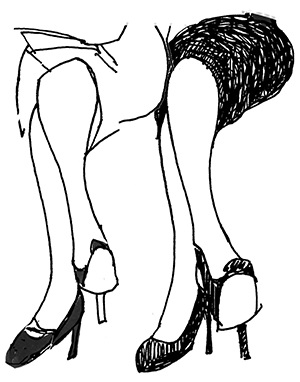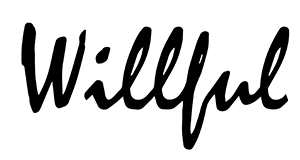Future shock
May 1, 2013
Shitty things can happen when good people do nothing. This is my interview with Story Board, the blog for the Canadian Media Guild and the Canadian Writers Group. The internet spreads stories, voices and awareness, when we use it well.
The 5-Minute Freelancer Q&A #8 – Alison Garwood-Jones
In this regular feature, Story Board asks Canadian writers to share a few details about their work habits and their strategies for navigating the ups and downs of freelance life.
1. What’s your strategy for generating story ideas?
A lot of it is just looking at the landscape and seeing what inspires me, what enrages me and seeing if I can respond to it in an engaging way. It comes from everything. I flit around from the computer to magazines, from print to digital, just trying to stay aware and trying to stay engaged myself and then seeing if I can spin it through my own sensibility on my blog. It’s everywhere. It’s based on what I see when I go to the AGO, it’s based on what I experience when I’m hanging out with friends at a restaurant, what are they talking about? What’s the latest app they’re using? My blog covers a wide range of topics, I put it under the umbrella of human nature, but I think what’s happening in the digital world is a good example of how human nature responds to new toys and new forms of communication.
And I’ve had several blog posts turn into pieces because editors have gotten in touch with me saying “that was really moving or really interesting, do you want to expand on that into a print piece?” I’ve always found that if something really gets me going, I’m probably not the only one.
2. What’s the most important thing you’ve done over the years to develop your writing skills?
Probably start blogging. I was reluctant in the beginning. I got into journalism late in my career. I had a whole other life as an art historian. And then I decided I wanted to be less of an academic and get into journalism and write for a broader audience. Write for the common reader, as Virginia Woolf said. I just wanted to engage on a more sort of visceral level with people through writing. The nice thing about getting into journalism in 2005 is that I was right on the tail end of the golden age of journalism. So adapting to a new environment in social media and web 2.0 wasn’t as hard for me. I wasn’t as invested in the old way. I hadn’t been in it long enough. A quote I put up above my desk was “I’d better flee into the future as fast as I can.” So the smartest thing I did was build a website, start blogging. I wouldn’t say getting on Facebook was necessarily a smart thing! But Facebook and all the social media platforms like Twitter and Pinterest are great for alerting people when you’ve got a new blog post and that’s how you drive traffic, obviously, back to your homepage.
I’m finding now that blogging… whereas before I was a little wary, like “what’s this all about, it’s devaluing the work of print journalists,” now I feel more like, wow, this is the biggest revolution for writers in I don’t know how long. And I’m really in agreement with Craig Silverman when he wrote last year on Facebook in a comment, he said “I see my blog emerging as the primary focus of my work, with the print column representing a unique extension and opportunity.” And when I read that I instinctively knew that’s exactly how I’m feeling as well. I honestly feel like my blog and my website is a sandbox for me. It’s where I workshop ideas and really work on my craft.
3. Do you think there’s ever a situation when it makes sense for a writer to write for free, and if so, when?
For me it makes sense on my blog, obviously. The fact that I haven’t entertained any advertisers is important. That’s deliberate. I want complete freedom. With my own work, I don’t have an attitude that every word I write is worth so much. Now outside of that it is a little more complicated. I definitely don’t think writers should undersell themselves. I think we’re at a watershed period where what’s happening right now with contracts – the all-rights grabs – is definitely an opportunity for writers to step back and say “no, this is unacceptable.” And it’s a scary step to take and a lot of people have shown an enormous amount of courage, Amber Nasrulla and Jay Teitel, and they speak for so many of us and they have my full moral support. This is a time where you almost have to live your life as a writer assuming that all publishers will go this route and will try and grab all moral and digital rights. So it means that we have to be really smart about looking for ways to pay our bills that don’t necessarily involve writing for magazines. Hopefully we can continue to do that and not all publishers will go with these kinds of contracts.
But I think you have to, as a businessperson, be really smart and say “okay because I refuse to sign that, let’s figure out how I can create a patchwork income doing a whole bunch of other different things so I can continue to write.” It may mean only continuing to write on your blog, who knows. But right now we’re going through such a transition period with so many interesting possibilities. Derek Finkle’s brought this up: self-publishing is becoming a really interesting and, as he said, a subversive tool for writers. A writer can take a larger cut of the royalties through self-publishing than they can through the traditional route. And that’s never happened before. There’s never been that much opportunity for writers to have control over their content and their royalties. So it’s a big transitional period, I find it really exciting.
Would I write service journalism for free? No, because I’ve already been on staff and you get to a point in your career where you know you have a certain skill level and it would be so regressive. Like the old saying goes “you can’t eat exposure.” At some point you don’t need more exposure. That’s not your goal. It’s about a business relationship and a respectful one on both sides. It’s tough. And I think it’s something they need to teach. They need to have these hard business-type discussions with students. It’s not all about crafting stories and narrative arcs. It needs to be, okay, you have to think about how long you’ll accept writing for free and at some point know that you can up the ante and start negotiating. And it needs to be earlier than I think what people have been doing. It’s amazing what you can get if you just ask for it. And not enough writers are doing that.
4. Work can take over your life when you’re a freelancer. What do you do to try and maintain a healthy work-life balance?
I walk a lot. I go out in the sunshine. I have a part time job at a bar downtown and that takes me outside of my head, helps me pay my bills and is a complete change of pace for me from the solitary life of writing. I think it’s important to mix up the kind of work and play that you do so that it’s not all surrounding writing or talking about writing. I just try and do things that are the polar opposite of what I might do at my desk. And that’s a good mental break.
• Alison Garwood-Jones is a Toronto-based writer and blogger. Her writing appears in the current issues of Glow, Azure, and House and Home and her blog, Society Pages was nominated for a 2013 Canadian Weblog Award. You can follow her on Twitter at @AlisonGJ.




























Leave a Reply